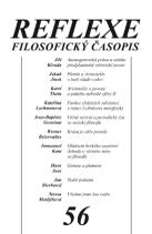Philosophy as Rigorous Science. I: Christian Wolff’s Legitimization of a Systematic Metaphysics
Using Wolff (Part I) and Kant (Part II, to follow) as two paradigmatic examples, the present paper deals with the very possibility of a systematically construed philosophy, with a special focus on metaphysics. An inquiry into Wolff’s ambiguous account of the relationship between the metaphysica generalis and the tripartite metaphysica specialis can demonstrate that cosmologia generalis receives ontological priority, the reason being that Wolff attributes ontological primacy to the inner-worldly entity as such and this concept then frames the general discussion. The point can be further established by examining the relationships stipulated within the metaphysica specialis: here, Wolff employs empirically given representations as grounds for our conscious access to „things out there“, and the empiricist premise necessarily wracks his attempt to justify a systematic and necessary order within the metaphysica specialis.
Backlinks: Reflexe 27
